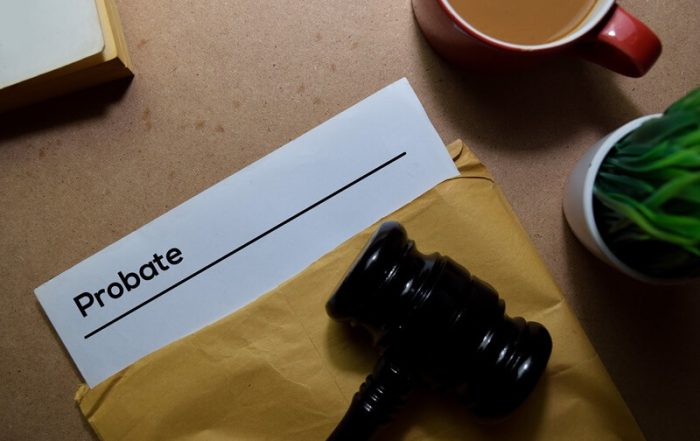How To Deal With Hidden Or Missing Assets In Probate Disputes
How To Deal With Hidden Or Missing Assets In Probate Disputes
Probate is a process designed to resolve a loved one’s estate and distribute their assets fairly. However, hidden or missing assets can turn this process into a source of tension and frustration. Overlooked accounts, forgotten investments, or concealed property can delay proceedings and even lead to legal battles.
California’s probate laws aim to uncover and address these assets, ensuring the estate is distributed according to the decedent’s wishes. Families can navigate these challenges and avoid prolonged disputes with the right approach.
This article will guide you through understanding hidden assets, exploring legal remedies, and implementing strategies to recover them. By the end, you’ll have the tools to protect your loved one’s legacy and resolve conflicts confidently.

Understanding Hidden & Missing Assets
Hidden or missing assets in probate disputes are often the root of delays and conflicts. These assets, whether overlooked or intentionally concealed, raise questions about fairness in estate distribution. Knowing what constitutes these types of assets is the first step toward resolving such disputes.
What Are Hidden & Missing Assets?
Hidden assets are deliberately withheld from disclosure during probate. This concealment may be due to fraudulent intent, misunderstandings, or a lack of trust among parties. Examples include undeclared bank accounts, unreported real estate, or cash reserves stored in personal safes.
Missing assets, in contrast, are typically overlooked due to incomplete records or a lack of knowledge about the decedent’s holdings. Examples include forgotten life insurance policies, unclaimed property, or outdated investment accounts. In today’s digital age, missing digital assets, like cryptocurrency or online brokerage accounts, are also increasingly common.
The Impact On Probate
When these assets are not accounted for, the estate inventory remains incomplete, potentially leading to inequitable distributions. Executors face significant challenges, as failing to identify all assets can result in allegations of negligence or legal liability. Furthermore, beneficiaries may feel wronged, leading to disputes that complicate the probate process.
Understanding the nature of hidden and missing assets is essential to managing their impact on probate proceedings. With this clarity, executors and beneficiaries are ready to face the legal implications of probate litigation.
Legal Implications In Probate Disputes
Hidden or missing assets in probate disputes can trigger a cascade of legal challenges, affecting everyone involved. Under California law, executors have a fiduciary duty to act in the estate’s best interest, including identifying and disclosing all assets. When assets are overlooked or concealed, accusations of negligence or misconduct often follow, putting the executor’s role under scrutiny.
Beneficiaries, too, face the consequences of hidden assets. Disputes can arise when one party suspects another of intentionally withholding information. This may lead to formal objections or court intervention, which can delay the probate process significantly. In cases where fraud or theft is suspected, the stakes are even higher, with potential criminal charges compounding the issue.
Probate courts take these matters seriously, requiring clear documentation and transparency to resolve disputes fairly. Missing assets complicate estate distribution and create a ripple effect, undermining trust among heirs and executors.
Additionally, failing to locate assets can lead to inequitable distributions, leaving some beneficiaries shortchanged. This often results in costly litigation, draining resources meant for the estate’s heirs. Legal penalties, removal of the executor, and even personal liability are possible outcomes if responsibilities are not met.
Understanding these implications highlights the importance of addressing hidden or missing assets promptly. By resolving these disputes, executors can fulfill their legal duties, and beneficiaries can receive what is rightfully theirs. With the risks defined, it’s time to explore strategies for locating these assets in the next section.
Strategies For Identifying Hidden Or Missing Assets
Tracking down hidden or missing assets is akin to unraveling a mystery. Patience, persistence, and a structured approach are key. Executors and beneficiaries must exhaust every avenue to uncover these assets, ensuring the estate is complete for proper distribution. Below are proven methods for locating assets:
Examine Financial Records
Start with tax returns, bank statements, and credit card records. These can reveal overlooked accounts, unusual transactions, or undeclared income. Look for recurring payments or investments that point to hidden property or holdings.
Engage Professional Assistance
Forensic accountants can identify discrepancies in financial records, tracing funds that may have been moved or concealed. Private investigators can help locate assets such as real estate, vehicles, or offshore accounts, especially in complex cases.
Leverage Public Records
Search property deeds, vehicle registrations, and business filings to identify unlisted holdings. Utilize unclaimed property databases to recover funds, such as forgotten bank accounts or dormant stocks.
Consider Digital Assets
As cryptocurrencies and online investments grow, they often go unnoticed during probate. Specialized searches for digital wallets or accounts can unearth these modern forms of wealth. Review the decedent’s electronic devices and email accounts for subscription-based services that may indicate hidden holdings.
Taking the time to locate all estate assets minimizes disputes and builds trust among beneficiaries. Once identified, the next step is employing legal remedies to recover and integrate these assets into the estate. This is the focus of the following section.
Legal Remedies & Actions
Addressing hidden or missing assets legally ensures the estate can be administered properly. California probate courts provide straightforward remedies to resolve disputes and recover assets.
When hidden or missing assets are discovered, addressing them through legal channels is essential to restore fairness and complete the probate process. California probate courts provide a range of remedies to help executors and beneficiaries recover these assets and resolve disputes.
Petitions For Disclosure
Executors or beneficiaries can file petitions compelling individuals to reveal concealed or withheld estate assets. Courts may issue subpoenas for financial records, tax documents, or property deeds to trace missing assets.
Civil Litigation
Beneficiaries or executors may initiate lawsuits to recover property when they suspect intentional concealment or fraud. Courts often impose penalties, restitution, or damages to rectify the harm caused by the wrongful withholding of assets.
Criminal Prosecution
In fraud, embezzlement, or theft cases, criminal charges may be pursued against those responsible. Law enforcement can assist in recovering stolen property and ensuring justice is served.
Importance Of Evidence
Each remedy requires clear and compelling evidence. Bank statements, transaction records, and witness testimonies often serve as critical proof during court proceedings. Executors must document all efforts to locate and recover assets, as courts heavily scrutinize these actions.
Swift action is vital to prevent further harm to the estate. Prolonged delays can deplete resources and intensify disputes, creating additional burdens for beneficiaries and executors. Courts typically aim for resolutions prioritizing the estate’s integrity and equitable distribution.
With disputes addressed through proper channels, attention can turn to preventing similar challenges in the future.
Preventative Measures For Future Estate Planning
A well-structured estate plan safeguards against disputes over hidden or missing assets. By taking preventative measures, individuals can reduce the likelihood of overlooked property and ensure their wishes are honored. These steps provide peace of mind and protect beneficiaries from unnecessary complications during probate.
Building A Comprehensive Asset Inventory
Documenting all assets, both tangible and intangible, is critical. This includes bank accounts, investments, real estate, and less apparent holdings such as collectibles or family heirlooms.
Digital assets, like cryptocurrency, online payment accounts, or domain names, should also be included. Maintaining a detailed and updated inventory simplifies the executor’s responsibilities and reduces the risk of missing anything.
Regularly Updating The Estate Plan
Life events—like acquiring property, changes in marital status, or significant financial shifts—require adjustments to estate plans. Regularly reviewing and updating wills, trusts, and other legal documents ensures that all assets are accounted for and distributed as intended. This proactive approach avoids disputes arising from outdated plans.
Transparent Communication With Executors & Beneficiaries
Sharing estate details with trusted executors and key beneficiaries fosters understanding and reduces the risk of disputes. Clear communication builds trust and allows questions or concerns to be addressed during the planning phase rather than during probate.
By implementing these measures, individuals can ensure a smooth and transparent probate process for their loved ones. While prevention is the goal, disputes can still arise. This underscores the importance of professional legal support when hidden or missing assets come into play.
Los Angeles Probate Attorneys: Assisting With Hidden Or Missing Assets

Resolving hidden or missing asset disputes requires a clear strategy, and that’s where Los Angeles Probate Attorneys excel. Our approach transforms a potentially overwhelming process into a manageable and focused one.
Our three-step legacy-building process starts with a thorough review of the estate. We identify overlooked or concealed assets through diligent research and innovative methods. Next, our team crafts legal strategies tailored to each client’s specific needs, addressing disputes with precision. Finally, we provide ongoing follow-up to ensure successful resolutions.
Our essential services include:
- Filing petitions for asset recovery.
- Representing clients in probate litigation.
- Providing legal guidance for fraud-related issues.
Los Angeles Probate Attorneys prioritize client concerns, offering solutions rooted in both law and compassion. Our commitment to transparent communication ensures that families remain informed and supported throughout the process.
With our assistance, you can focus on honoring your loved one’s wishes, confident that every detail is handled. If you’re facing a probate dispute, take the first step today by consulting with our experienced probate attorney.
Summary
Hidden or missing assets are often the most frustrating obstacles in probate disputes. They can delay proceedings, cause family strife, and raise legal challenges. However, with the right approach, these issues can be resolved effectively.
This article explored how to identify hidden assets, legal actions to recover them, and steps to prevent future disputes. It also highlighted the invaluable role of Los Angeles probate attorneys in navigating these challenges. By acting decisively and seeking professional support, families can protect their loved one’s legacy and move forward with clarity.








